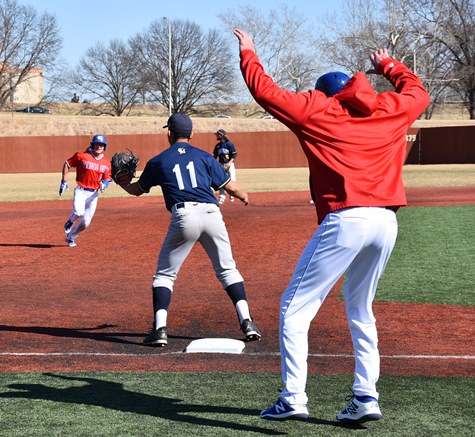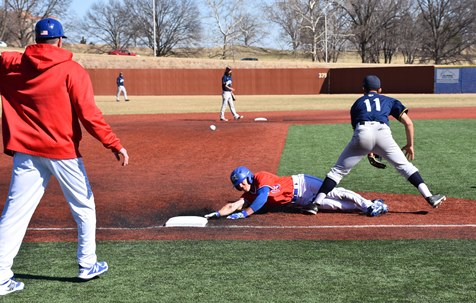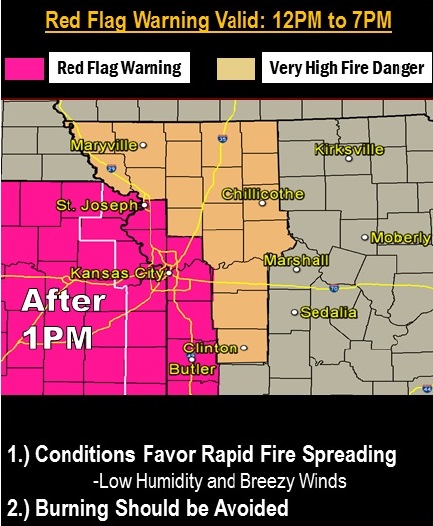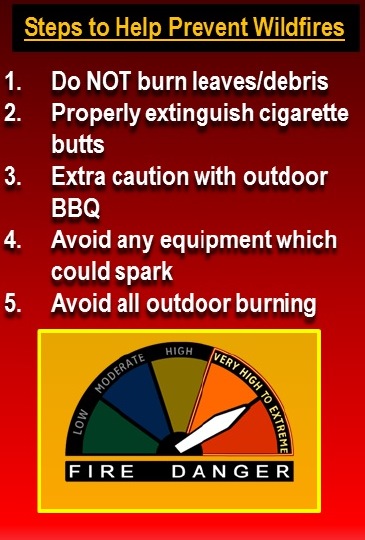by Celia Llopis-Jepsen, Kansas News Service
Editor’s note: A trial in U.S. District Court in Kansas City, Kansas, has challenged the documentation required by Kansas laws to register to vote. This Kansas News Service story has been updated daily online at http://kcur.org/post/daily-developments-kansas-motor-voter-v-kobach-trial, and the latest developments are at the bottom of the story.
How far must people go to prove they’re really Americans when they register to vote?
Does simply swearing to the fact — at risk of perjury, prison, fines and deportation — protect democracy from non-Americans subverting an election?
Or are cheaters common enough that only documents — say a birth certificate or a passport — go far enough to protect the integrity of the ballot box?
Kansas Secretary of State Kris Kobach, and a 2011 law he lobbied lawmakers for, demand the documentation.
Critics — including the League of Women Voters and a handful of Kansans who’ve been denied voter registration at driver’s license offices — contend the rules steal their right to vote. They point to the federal 1993 National Voter Registration Act, or Motor Voter Act. It lets voters swear that they’re citizens. Liars risk perjury.
Now in federal court in Kansas City, Kansas, Kobach faces off against lawyers from the American Civil Liberties Union to test whether voter fraud is common enough to warrant the strict registration rules in Kansas, or whether doing so squelches the votes of tens of thousands to protect against extraordinarily rare cases of foreigners casting ballots.
Go here for a story (http://kcur.org/post/trial-tests-kansas-voter-registration-rules-and-kobachs-fraud-claims) that explains what’s at stake in the trial.
Below is a summary of what’s been happening in the courtroom (and if you want to follow on Twitter, @Celia_LJ is filing moment-by-moment):
Tuesday, March 6
The Kansas side
In his opening arguments, Kobach said that Kansas had been letting non-citizens onto the voting rolls before it tightened registration requirements.
“All you had to do was check a box,” he said. “That was it.”
Kobach said Republican and Democratic lawmakers alike voted in 2011 to fix that.
He dismissed claims that voter fraud is rare. Rather, Kobach said it’s hard to uncover cases because no comprehensive list exists that Kansas can check to see who is, and who isn’t, a citizen.
“We can only see a tiny percentage” of fraud, he said. “We know that it is in the thousands, and we believe the best estimate is that it is over 18,000 (non-citizens) currently on the Kansas voter rolls.”
The secretary of state said Kansas is bending over backward to make voter registration convenient for legitimate voters. It accepts proof of citizenship over fax, text message, mail, in person or through email.
The ACLU side
The ACLU called Kansas’ demands for copies of birth certificates or other documents out of proportion to reality.
“Enforcing this law is like taking a bazooka to a fly,” attorney Dale Ho said, “and the collateral damage in this case has been thousands of Kansas voters.”
Kansas’ requirements are the strictest law in the country, the ACLU said, because Arizona, the only other state with an active law similar to the one in Kansas, lets people register with their driver’s licenses.
The ACLU said Kobach has only presented evidence of fewer than three non-citizens registering to vote in Kansas per year since 2016. It also said there’s evidence that happens through administrative errors, such as DMV employees mistakenly offering registration to unqualified people.
Lawyering
Kobach and an attorney from his office, Sue Becker, got off to a rocky start when they were blocked from showing to the court — and asking witnesses questions about — multiple documents that Kobach’s team hadn’t formally introduced as evidence.
“Evidence 101 — not going to do it,” said Judge Julie Robinson, who was appointed to the bench by then-President George W. Bush. “We’re going to follow the rules of evidence.”
Among these would-be submissions were new statistics on Kansas voter registration applications that Kobach emailed to the ACLU lawyers at 10:45 p.m. Monday night.
Kobach’s side repeatedly stumbled on other rules, too, leading the judge to cut off some of their lines of questioning to the witnesses.
In one instance, the judge shut down queries in which the secretary of state suggested a camera crew might be following around a Kansan who says he was blocked from voting in 2014. That, Kobach said, could reflect motivation to exaggerate.
In another instance, Becker appeared not to understand the rules for referencing depositions in court. She stood and took directions from the judge.
Kobach grilled a key ACLU witness — University of Florida political science professor Michael McDonald — about whether he is biased against the secretary of state. McDonald conceded he had tweeted critical tweets related to Kobach but denied he is biased against him.
Kobach pointed to a tweet that said a staffer who worked for Vice President Mike Pence “was quoted as saying working with Kobach was a shit sandwich.” Another McDonald tweet suggests Kobach was “unfit” to lead President Donald Trump’s voter integrity commission.
The ACLU called McDonald to testify on the impact the Kansas registration law had on hindering voters. McDonald found more than 30,000 would-be registrants had their applications suspended or canceled.
Wednesday, March 7
Kobach’s legal team continued to trip up on courtroom procedures, such as how to introduce evidence and quote from depositions while cross-examining witnesses.
At one point, Becker attempted to read aloud a document after being blocked by rules on admitting evidence.
“I’m not going to let you just read the contents into the record,” the judge told her.
Wednesday’s witnesses included University of Kansas senior Parker Bednasek. He knew that he couldn’t successfully register to vote without proof of citizenship. On principle, he said, he won’t provide that documentation to Kobach’s office.
“I do not agree with the law,” said the political science major, who has volunteered for the Kansas Democratic Party.
Marge Ahrens, the former president of the Kansas League of Women Voters, testified that Kansas’ law devastated her organization’s efforts to help people register to vote. The group had previously done that by visiting high schools, college campuses and other places and asking people if they wanted to register.
“It was absolutely a blow,” she said. “The league was really knocked off its feet.”
League volunteers spent thousands of hours trying to tackle the problem, Ahrens said. For example, they contacted people on Kobach’s list of suspended voters to let them know their registrations weren’t complete. And they carried portable copying equipment to people’s homes to help them submit proof of citizenship documents.
Through cross examination, Kobach’s legal team sought to build an argument that it isn’t burdensome to ask Kansans to provide proof of citizenship documents. It also called into question whether Bednasek, originally from Oklahoma and Texas, is a resident qualified to vote in Kansas, but Robinson said she had already ruled that he could legally vote in Kansas.
In the afternoon, the ACLU revealed that two non-citizens cited by Kobach’s office as registering or attempting to register to vote had marked that they were not U.S. citizens on their driver’s license applications. The ACLU is seeking to show that non-citizen registration is not only rare but also happens in part because DMV staff sometimes accidentally prompt them to sign up to vote.
Thursday, March 8
Thursday’s proceedings turned to the question of whether Kobach can show non-citizens are gaming the system to vote in U.S. elections. The day’s court session ended abruptly amid a string of admonishments from the judge for the Kobach team, which repeatedly tried maneuvers that would have violated trial procedure.
“When are we going to close the door, Mr. Kobach?” she said as his team continued its practice over the past three days of trying to cite materials that hadn’t been provided to the ACLU. “You’re stuck with what you provided them before trial.”
“That’s not fair, that’s surprise, that’s ambushing,” she said during a heated exchange that included cutting off Kobach legal team member Becker and calling her “out of line.”
Tabitha Lehman, a Kobach appointee in charge of Sedgwick County elections, faced a grilling from ACLU lawyers about a list of more than 30 non-citizens who Kobach says either registered to vote or attempted to do so.
The core question is whether those instances point to much wider problems or show that DMV and election officials are making clerical errors when they register people to vote or mark them down as instances of non-citizens attempting to vote.
The ACLU highlighted an email between election staff complaining that DMV workers keep erroneously signing non-citizens up for voter registration when they apply for driver’s licenses.
The ACLU also showed that some of the people on Lehman’s list had disclosed on their DMV forms that they weren’t citizens.
Kobach, however, countered that some had also signed the oath at the DMV indicating they are citizens. He suggested Lehman’s list should be longer than it is, but that uncovering non-citizens on the voter rolls isn’t easy.
“Have you discovered every non-citizen?” Kobach asked Lehman.
“I have no idea,” she responded. She said her office last found one in December 2017.
ACLU lawyers sought to show Kobach is blowing things out of proportion by emphasizing that most people on Lehman’s list had never cast a ballot. Five of them did.
Also Thursday, the ACLU raised concerns after Lehman revealed on the stand that despite a court decision to sequester witnesses, she had read news coverage of the ongoing trial and so knew about other testimony.
Regardless of the debate over Lehman’s list, Kobach faces a much steeper hurdle. An appeals court has already set the standard for the case and concluded Kobach needs to prove much higher numbers of non-citizens registering than he has done so far. Otherwise he can’t block tens of thousands of voter applications because a small number might not be Americans.
Kobach also must prove illegal voting can’t be prevented in some other way. The ACLU is arguing he can follow the steps of a few other states using a Department of Homeland Security database to check citizenship status. Kobach argues logistical hurdles prevent him from doing that.
Friday, March 9
Kansas’ secretary of state wanted the future Trump administration and Congress to prod more states to adopt stricter voter registration laws. Changing federal law to do so could have altered the course of the ACLU’s lawsuit, which was already pending against him at the time.
Kobach, pressed by ACLU attorney Dale Ho, talked about that plan in a 40-minute video drawn from a deposition.
Kobach’s team had fought against showing the video in court. It pushed instead for a transcript to be read aloud, but failed to convince the judge, George W. Bush appointee Julie Robinson.
In the video, Kobach says he gave out copies of a document with his ideas during a meeting in late 2016 with Donald Trump and key members of the then-president elect’s inner circle — son-in-law Jared Kushner, political advisers Steve Bannon and Stephen Miller and future chief of staff Reince Priebus.
Ho pressed Kobach in the deposition to explain how he came to draft potential changes to the 1993 National Voter Registration Act, often referred to as Motor Voter. The lawsuit being tried in federal court this month — and a preliminary injunction that thwarts Kobach’s efforts in the meantime — would appear to be undermined by the suggestions floated with the presidential transition team.
Kobach repeatedly said he only drafted the Motor Voter changes as a contingency in case he eventually lost the case and the U.S. Supreme Court refused to consider it.
“I think it wouldn’t be prudent,” he said, “to draft any amendment to the (Motor Voter Act) until after this case is concluded.”
Also on Friday, Kobach’s team and the ACLU sparred over the very meaning of “voter fraud.”
The ACLU put Rutgers University professor Lorraine Minnite on the stand. She said “fraud” involves knowingly doing something illegal — a definition that she said aligns with criminal law.
But that would exclude some non-citizens that Kobach has uncovered in cases that involved administrative errors by the DMV.
Minnite spoke about her research into elections and the politics of voter fraud allegations. She said she had scoured federal and state data from across the country, but had found little to back ideas spread by Kobach and others of widespread non-citizen voting.
“I came to the conclusion that the incidence of voter fraud nationally is extremely rare,” she said.
“Mostly these were unsubstantiated allegations, false allegations, or error as well. Administrative error.”
She studied news coverage in Kansas going back to the 1990s and found voter fraud got almost no attention until Kobach ran for his current office and began describing it as pervasive.
“(He) would just keep asserting it was a problem,” she said. “He’d say we have to stop voter fraud.”
Kobach called Hans von Spakovsky to the stand to challenge some of what Minnite had said. He’s a senior fellow at the conservative Heritage Foundation and a former member of the Federal Election Commission.
He argued that intent doesn’t matter with voter fraud. When non-citizens end up on the rolls, he said, it defrauds legitimate voters by undermining election integrity.
That seemed to catch the judge, Republican appointee Julie Robinson, off guard.
If a law blocks thousands of legitimate voters from registering to vote, the judge wondered, “would that not also be defrauding the electoral process?”
Von Spakovsky also faced questions from the ACLU about his views on foreigners and U.S. citizenship. He said as the son of immigrants, he has nothing against them. But he also took the highly controversial view that people born in the U.S. to non-American parents aren’t citizens.
He told the court the United States has a problem with illegal voting because “we have mostly an honor system” that lets people register by attesting to their citizenship.
Von Spakovsky pointed to non-citizens being discovered in Virginia, Utah and other states, and said the Heritage Foundation maintains a database of illegal voting convictions and other verified instances of voter fraud that has more than 1,000 entries.
The stakes, he said, are hundreds of state and local elections, and a small number of illegal votes could make a difference in tight races.
The ACLU challenged von Spakovsky by getting him to concede he has never published any peer-reviewed work and pressing him on an opinion piece he wrote on Somalis stealing a Missouri election through illegal voting — something that didn’t happen.
“You never published a written retraction?” Ho asked him.
“I don’t believe so,” von Spakovsky replied.
Week Two
Monday, March 12
Kobach’s office faced more hurdles to entering evidence — things the legal team hadn’t provided in advance of trial. That included new calculations related to how often non-citizens vote.
Judge Julie Robinson, in apparent consternation, asked Kobach to “please” read evidence and deposition rules that had now come up “ad nauseam.”
“You can’t sit down with your expert on the eve of trial and come up with new numbers,” she chided him.
To show the Kansas law hasn’t suppressed voter registration or voter turnout, Kobach’s legal team leaned on Steven Camarota. He’s director of research at the Center for Immigration Studies, a Washington, D.C., think tank that advocates for more limits on immigration.
Camarota compared the 2010 and 2014 election years — before and after the law took effect — and cited Census Bureau data as supporting Kobach’s case.
“We don’t see evidence based on this data,” he said, that asking would-be voters for birth certificates or other documents proving citizenship impedes them from registering and voting.
That holds true, he said, when you break the data down to look at young people and non-white and white eligible voters. (A previous ACLU witness testified that the Kansas law has disproportionately hindered young voters.)
The ACLU challenged Camarota’s methodology — accusing him of using too little data, producing his expert report on a tight deadline, and failing to consider that voter registration and turnout are difficult to compare across two elections because competitiveness of races and other factors can vary so much.
They pressed him on his political leanings, too, saying the founder of his think tank has been called “the racist architect of the modern anti-immigrant movement” by the civil rights group Southern Poverty Law Center.
The lawyers pointed to Camarota’s blog, asking if he believes non-citizens are more likely to commit crimes than citizens. In a post on the blog, Camarota wrote that immigrants commit a disproportionate number of federal crimes.
“That’s what the data show,” he replied.
The Washington Post has previously written in fact-checking claims related to immigrant crime that data is incomplete “but a range of studies show there is no evidence immigrants commit more crimes than native-born Americans.”
Later in the day, Camarota told the court “the suggestion that the Center is motivated by some kind of racial or ethnic animus is outrageous.”
In the afternoon, Kobach called retiree Jo French, who said that she was born at home in Arkansas and that that state doesn’t have records of her birth. Kobach’s office scheduled a hearing for her in 2016 to make a case in person to high-ranking officials that she is a citizen.
Six people have completed such hearings, which Kobach sees as assurance that all citizens can access the right to vote in Kansas.
French’s testimony repeatedly wandered to other topics, such as the miles on her car and her past experience working for Sears. Her statements appeared at times to support Kobach’s case and at times the ACLU’s position.
“I was hurt that no one believed me that I was an American citizen,” said French, who in the past had registered to vote in Arkansas and Colorado, but “I think every state in the United States should have this type of documentation to eliminate fraud.”
French said Kobach’s office told her she could use her family Bible, baptism papers and high school transcript to prove her citizenship. Gathering those wasn’t difficult, she said.
French said she and assistant secretary of state Eric Rucker had become friends and she was happy to testify about her experience at trial to help Kobach’s office because she wants voter fraud to stop.
“I wanted him to look good,” she said.
That prompted apparent concern from the judge, who asked about her friendship with Rucker and whether he or Kobach had spoken to her about voter fraud. French said she had learned about voter fraud and Kobach’s work by watching the news.
In the afternoon, testimony from Old Dominion University’s Jesse Richman devolved quickly into argument. In the course of answering questions from the ACLU and Robinson about his data sources, the political science professor repeatedly interrupted the judge.
“Wait, wait, wait!” the judge called out as the situation heated up and more people in the courtroom began speaking simultaneously. “Especially you,” she added to Richman, instructing him not to talk except when answering questions. “You’re not here to trash the plaintiff. You’re not here to argue with me.”
Convincing the judge that Richman’s statistics on non-citizen voter registration are reliable is critical to Kobach’s case. The 10th Circuit U.S. Court of Appeals has said he must prove the problem is significant.
Richman offered four possible projections of how many non-citizens are on the rolls. They range from about 1,100 to more than 18,000.
In a brief to the court, Kobach says that shows “the iceberg is substantial” — that he’s only uncovered a small fraction of non-citizens registered to vote.
Richman’s testimony and cross-examination will continue Tuesday.
Tuesday, March 13
Note: The trial wrapped up for the week late Tuesday. It will resume next Monday.
On Tuesday, Richman showed more statistical calculations meant to estimate how many non-citizens are on Kansas voter rolls. One such analysis suggested a range of between 10,000 and 60,000 people.
The ACLU continued to attack the methods and credibility of Kobach’s witness, saying 200 political scientists had signed an open letter critical of his work. (http://mediad.publicbroadcasting.net/p/kcur/files/201803/open_letter_from_poli_scientists.pdf?_ga=2.37081120.1838499333.1520865947-1442792821.1520865947 ) (Richman responds to the open letter here. https://fs.wp.odu.edu/jrichman/2017/03/10/why-i-would-sign-the-open-letter-if-it-were-true/)
They pressed him on how he coded a survey of people whose voter applications had been blocked, which in part included labeling names as foreign if Richman and an assistant didn’t think they sounded like English-speaking people.
Richman replied that wasn’t the only criterion for marking certain names.
An ACLU lawyer asked him whether he would label “Carlos Murguia” foreign, and when Richman replied he probably would, revealed Murguia is a federal judge in that very courthouse.
The ACLU also showed a 2016 video in which Kobach, while speaking with reporters, backs President Trump’s claims that he lost the popular vote to Hillary Clinton because of millions of illegally cast ballots.
Richman agreed with an ACLU lawyer that his research hasn’t shown this to be true and he doesn’t know of any research that has.
Later, the ACLU called Tufts University political science professor Eitan Hersh, who also analyzed Kansas voter registration records.
He questioned the conclusion that there’s a widespread problem of non-citizen registration. Kansas records show 400 people with birth dates that indicate they’ve been registered to vote since before they were born. Yet he said no one is arguing there’s a problem with parents registering their children before they’re born. Instead, he said, there’s an assumption those are clerical errors.
Kobach’s team pushed back, questioning inconsistencies between Hersh’s analysis and the state’s own work. Hersh attributed those to Kansas not sending him thousands of voter records he needed for his analysis.
The ACLU then called Harvard government professor Stephen Ansolabehere, the developer of a data source Richman draws on for his math. Ansolabehere rejected Richman’s calculations.
“They don’t provide any real statistical evidence” of non-citizen voting, he told the court.
Kobach took issue with his conclusions and sparred with him on nitty-gritty details of probability math.
This post will be updated throughout the trial.
Celia Llopis-Jepsen is a reporter for the Kansas News Service, a collaboration of KCUR, Kansas Public Radio, KMUW and High Plains Public Radio covering health, education and politics. You can reach her on Twitter @Celia_LJ. Kansas News Service stories and photos may be republished at no cost with proper attribution and a link back to the original post.
See more at http://kcur.org/post/daily-developments-kansas-motor-voter-v-kobach-trial.




